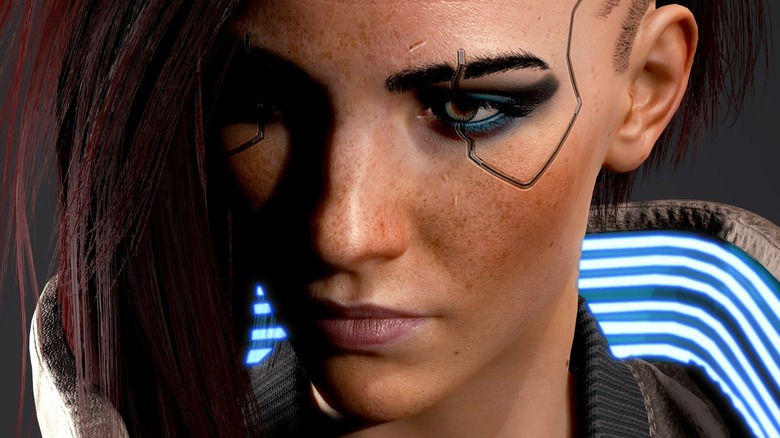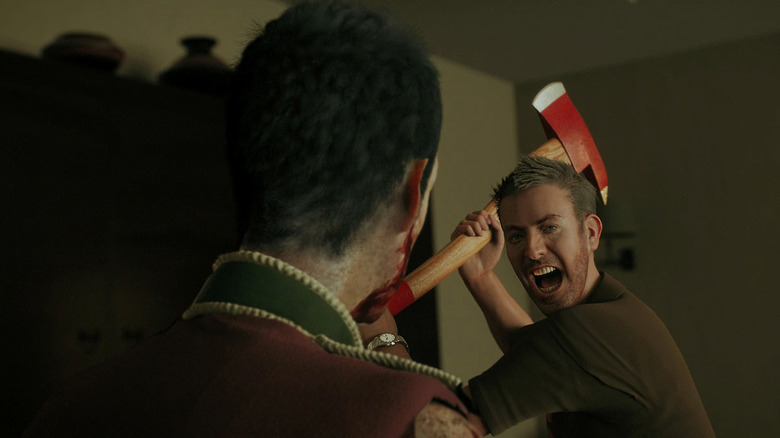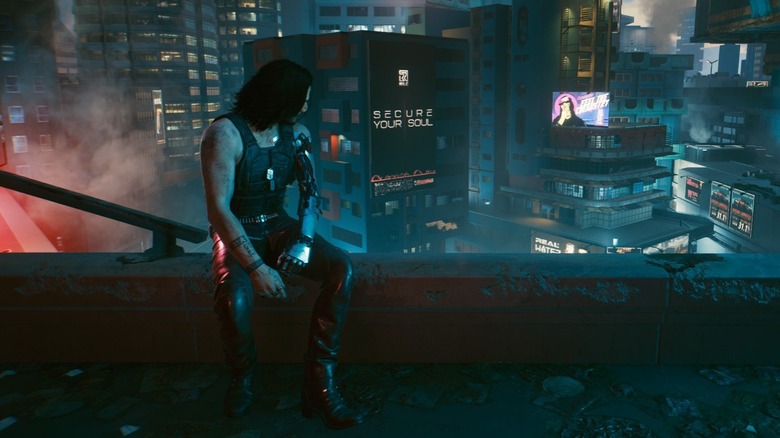Legal Expert Explains How Universal's Movie Trailer Lawsuit Could Impact Gaming - Exclusive
Video game trailers are meant to get fans hyped up for the latest and greatest experiences in gaming. As such, trailers for hot new games often include plenty of gameplay highlights, upbeat or emotional music, and big moments that will have players ready to bust out their wallets to find out what happens next. Movie trailers aren't much different, as they have to sell potential audience members on purchasing their tickets in just a few minutes of screen time. However, some fans feel that these trailers can cross the line into misrepresenting themselves to get folks in the seats.
That was the focus of a recent lawsuit brought forth against Universal, as two fans of actress Ana de Armas alleged they'd been misled into renting the 2019 film "Yesterday" (per Variety). Though de Armas appears in the film's trailer, her character was ultimately cut from the film. According to a ruling by U.S. District Judge Stephen Wilson, "At its core, a trailer is an advertisement designed to sell a movie by providing consumers with a preview of the movie." Because Ana de Armas is seen in a seemingly pivotal moment in the trailer and not in the final film, the trailer can be seen as false advertising. This suit could change the way studios think about editing their trailers going forward, especially if they want to avoid potential lawsuits such as this one.
But could video game trailers be scrutinized in a similar way? To find out how this ruling could impact the gaming industry, SVG reached out to entertainment attorney Tre Lovell, owner of The Lovell Firm. Here's what he had to say about this case.
Game trailers could face similar liability issues
SVG asked if it was possible for fans to hold video game publishers liable for misleading trailers in the same was as this recent suit against Universal. Tre Lovell replied, "The judge in the lawsuit brought by fans of Ana de Armas ruled that a movie trailer is commercial speech and that it's an advertisement, which opens it up to liability for false advertising. Video game trailers are similar to movie trailers, so the same liability issues could crop up for the video game industry."
The results of the suit against Universal could definitely be a game-changer for the video game industry, as a number of notable trailers have been called out in the past for representing games as something decidedly different from the final product. Who could forget the emotional first trailer for "Dead Island," which told the story of a loving family struggling against the inevitability of a zombie apocalypse — only for the game to feel vastly different? As noted by Laura Parker writing for GameSpot, this can create a serious disconnect for fans when the trailer is deemed to be superior to the game itself.
And as Tre Lovell explained, this is something that video game publishers may want to avoid in the future. "Game studios should be careful about what they put in their trailer and how it lines up with the version of the game that consumers will buy," said Lovell. "A video game trailer is designed and intended to market the game. So game studios could be liable depending on how much a preview deviates from the finished product." Along those same lines, Lovell told SVG, marketing for video games would do well to avoid spotlighting characters that may not be in the final retail version of the game.
How game studios could be impacted in the future
A number of games have come under fire over the years for advertising gameplay mechanics that fell by the wayside. For instance, several "Cyberpunk 2077" features were left on the cutting room floor after being prominently displayed in gameplay previews and dev updates.
According to Tre Lovell, this could pose a significant problem for developers in the future: "If a video game studio gives a game feature significant placement in a preview and a reasonable gamer would rely upon that preview to make a purchasing decision, and the preview turns out to be false, there could be liability." To avoid this, studios might want to be totally transparent about the fact that the footage displayed is but a work-in-progress and not totally indicative of the final product.
Ultimately, video game publishers could be held to the same standards as movie studios when it comes to advertising, especially if fans deem said advertising to be misleading. Lovell explained that lawsuits could be filed that could result in a game or trailer being pulled from circulation until the studio could ensure that the marketing correctly reflected the product being released. Such a lawsuit could also lead to a judge "issuing a ruling that would force studios to disgorge their profits or pay back to consumers what they spent as restitution for deceptive advertising."
Based on these insights, the lawsuit against Universal would seem to set a precedent and template for video game studios — and frustrated gamers — to follow in the future.



